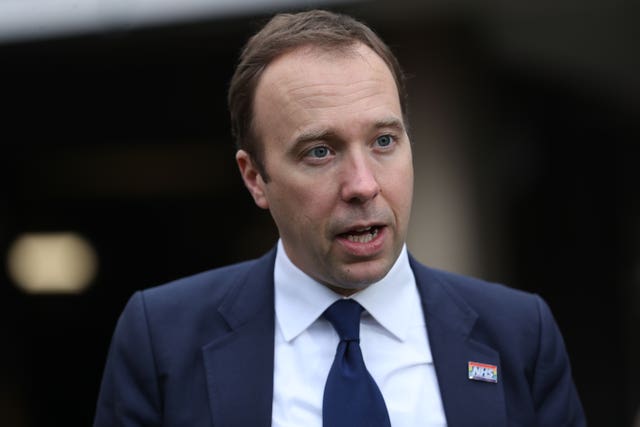
As cases of the new coronavirus continue to emerge, national and global bodies are working hard to prevent further transmission.
The vast majority of cases and deaths are in China, but Covid-19 has also spread to more than 20 countries, with eight UK cases confirmed.
Here are some of the key figures and organisations involved in the response.

– Dr Tedros Adhanom Ghebreyesus, director-general of the World Health Organisation
Dr Ghebreyesus was elected as WHO director-general for a five-year term by members in May 2017.
As head of the body, he oversees the policy for the body’s international health work, including its response to the new coronavirus outbreak.
Immediately after taking office, Dr Ghebreyesus identified health emergencies as one of five key priorities for WHO under his tenure.
Last year, he declared the Ebola virus disease (EVD) outbreak in the Democratic Republic of the Congo (DRC) an international public health emergency.
He has said the world needs to use the current window of opportunity to work together and defeat the “common enemy” of Covid-19.
Dr Ghebreyesus holds a Doctorate of Philosophy (PhD) in Community Health from the University of Nottingham and a Master of Science (MSc) in Immunology of Infectious Diseases from the University of London.

– Dr Michael Ryan, executive director, WHO Health Emergencies Programme
The father-of-three, from Ireland, has led many responses to high-impact epidemics after joining WHO nearly 25 years ago.
He served as co-ordinator of Epidemic Response, operational co-ordinator of WHO’s response to the Sars outbreak, and as WHO’s director of global alert and response.
He was a senior adviser on polio eradication for the global polio eradication initiative from 2013 to 2017, deploying to countries in the Middle East.
He completed medical training in Ireland and later trained in communicable disease control at the Health Protection Agency in London.
Dr Ryan has said it is “deeply, deeply unhelpful” to single out individuals as coronavirus spreads, and warned against attaching “unnecessary stigma” to patients.
– Chris Whitty, Chief Medical Officer for England
Prof Whitty is England’s Chief Medical Officer and head of public health.
He acts as the UK Government’s principal medical adviser, and the professional head of all directors of public health in local government and the medical profession in government.
He also advises the DHSC with overall responsibility for its research, and is a practising NHS consultant physician.
He and his fellow chief medical officers raised the risk of coronavirus to people in the UK from low to moderate, once it was declared an international public health emergency.
As an epidemiologist, he has undertaken research in the UK, Africa and Asia.

– Matt Hancock, Secretary of State for Health and Social Care
Mr Hancock was appointed to be in charge of the work of the Department of Health and Social Care in July 2018.
He has been leading the UK response to the coronavirus outbreak along with Prof Whitty and other agencies.
The Conservative politician declared coronavirus a “serious and imminent threat to public health” and has introduced new powers to deal with the spread of the virus.
He has also made funding available “to support any urgent works the NHS needs” in its response.
– Professor Keith Willett, NHS strategic incident director
Prof Willett is leading the NHS response to the cases of coronavirus.
The director for Acute Care to NHS England has national medical oversight of pre-hospital and ambulance services, emergency departments, urgent surgery, acute medicine, national major incidents and other areas.
He stepped in to confirm that the third person to be diagnosed with coronavirus had followed NHS advice when first becoming concerned about their symptoms.
And he later released a statement when the patient recovered and was discharged from hospital.


Comments & Moderation
Readers’ comments: You are personally liable for the content of any comments you upload to this website, so please act responsibly. We do not pre-moderate or monitor readers’ comments appearing on our websites, but we do post-moderate in response to complaints we receive or otherwise when a potential problem comes to our attention. You can make a complaint by using the ‘report this post’ link . We may then apply our discretion under the user terms to amend or delete comments.
Post moderation is undertaken full-time 9am-6pm on weekdays, and on a part-time basis outwith those hours.
Read the rules here